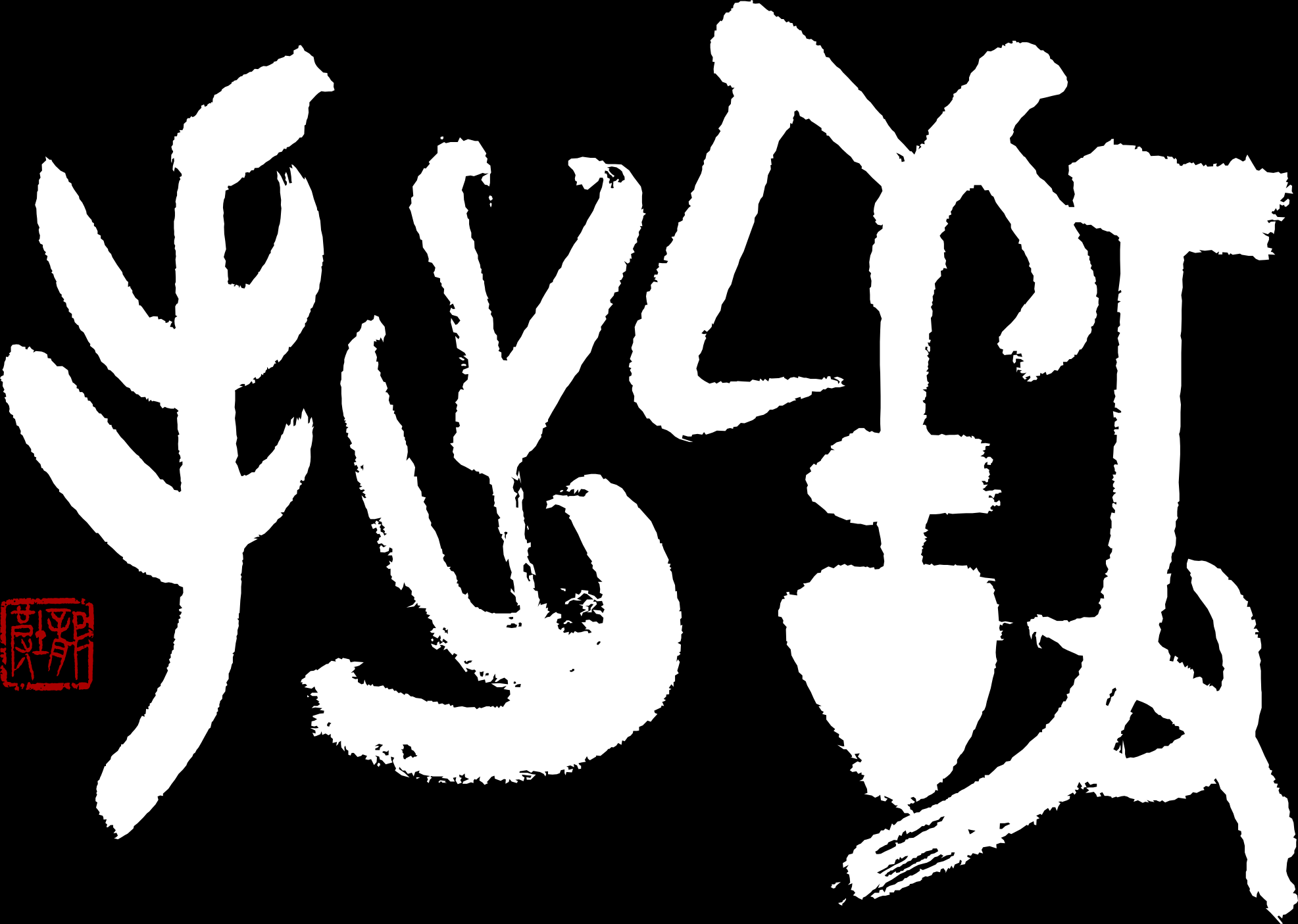| Get Ready! | Listen to the Japanese repeatedly and practice until you can say it smoothly. |
| ① | Repeat each question and answer three times. |
| ② | Your teacher will ask you the questions. Give your own answers. |
| ③ | Ask your teacher the questions and listen to their answers. |
| Pay special attention to the keywords. |
| 051 |  |
| それとも | |
| それとも | |
| Question 🔊 | Model answer 🔊 |
|
表示 ▶
漢: あなたはアメリカ人ですか、それともイギリス人ですか? 漢: 私はイギリス人です。 |
|
| 052 |  |
| できます | |
| できます | |
| Question 🔊 | Model answer 🔊 |
|
表示 ▶
漢: 自転車に乗ることができますか? 漢: はい。自転車に乗ることができます。 |
|
| 053 |  |
| どう | |
| どう | |
| Question 🔊 | Model answer 🔊 |
|
表示 ▶
漢: どうしましたか? 漢: お腹が痛いです。 |
|
| 054 |  |
| あなた | |
| あなた | |
| Question 🔊 | Model answer 🔊 |
|
表示 ▶
漢: あなたは暑いですか? 漢: はい。私は暑いです。 |
|
| 055 |  |
| します | |
| します | |
| Question 🔊 | Model answer 🔊 |
|
表示 ▶
漢: あなたのお母さんは自動車を運転しますか? 漢: はい。自動車を運転します。 |
|
| 056 |  |
| あります | |
| あります | |
| Question 🔊 | Model answer 🔊 |
|
表示 ▶
漢: あなたは熱がありますか? 漢: いいえ。私は熱がありません。 |
|
| 057 |  |
| 何 | |
| なん | |
| Question 🔊 | Model answer 🔊 |
|
表示 ▶
漢: 今日は何曜日ですか? 漢: 水曜日です。 |
|
| 058 |  |
| 何時 | |
| なんじ | |
| Question 🔊 | Model answer 🔊 |
|
表示 ▶
漢: 日曜日に何時に起きますか? 漢: 日曜日に9時に起きます。 |
|
| 059 |  |
| 誰 | |
| だれ | |
| Question 🔊 | Model answer 🔊 |
|
表示 ▶
漢: あなたの日本語の先生は誰ですか? 漢: ケイコ先生です。 |
|
| 060 |  |
| 話せます | |
| はなせます | |
| Question 🔊 | Model answer 🔊 |
|
表示 ▶
漢: あなたの妹はフランス語が話せますか? 漢: いいえ。妹はフランス語が話せません。 |
|
| Activity | Guess the question – part 1 |
| ① | Your teacher will say their own answers. Try to guess the questions. |
| ② | How many can you guess correctly in 30 seconds? |
| 051 |  |
| それとも | |
| それとも |
| 052 |  |
| できます | |
| できます |
| 053 |  |
| どう | |
| どう |
| 054 |  |
| あなた | |
| あなた |
| 055 |  |
| します | |
| します |
| 056 |  |
| あります | |
| あります |
| 057 |  |
| 何 | |
| なん |
| 058 |  |
| 何時 | |
| なんじ |
| 059 |  |
| 誰 | |
| だれ |
| 060 |  |
| 話せます | |
| はなせます |
|
Timer
30
|
|
Counter
0
|
| Activity | Guess the question – part 2 |
| ① | Now say your own answers. Your teacher will try to guess the questions. |
| ② | How many can you guess correctly in 30 seconds? |
| Listen In | Listen to the dialogue and answer the following questions. |
| ① | Can this person ride a bike? |
| ② | Does this person have a fever? |
| ③ | Does this person’s sister speak French? |
| Fill In ① | Use hiragana to fill in the missing words in the questions and your own answers. |
| Q051 | [ ] は あめりか-じん です [ ]、それとも いぎりす-じん です [ ]? |
| A051 | わたし は [ ] です。 |
| Q052 | [ ] に のる [ ] が できます か? |
| A052 | [ ]。じてんしゃ に [ ] こと が [ ]。 |
| Q053 | どう [ ] か? |
| A053 | [ ] が [ ] です。 |
| Q054 | あなた [ ] あつい [ ] か? |
| A054 | [ ]。わたし は [ ] です。 |
| Q055 | あなた [ ] おかあさん は [ ] を [ ] します か? |
| A055 | [ ]。じどうしゃ [ ] うんてん [ ]。 |
| Q056 | [ ] は [ ] が あります [ ]? |
| A056 | [ ]。わたし は ねつ が [ ]。 |
| Q057 | きょう [ ] なんようび [ ] か? |
| A057 | [ ] です。 |
| Q058 | にちようび [ ] なんじ [ ] おきます [ ]? |
| A058 | [ ] に [ ] に [ ]。 |
| Q059 | あなた [ ] にほんご [ ] せんせい は [ ] です か? |
| A059 | [ ] です。 |
| Q060 | [ ] の [ ] は [ ]X が はなせます か? |
| A060 | [ ]。いもうと は ふらんす-ご が [ ]。/いもうと が [ ]。 |
| Fill In ② | Now do the same using kanji, etc. |
| Q051 | [ ] はアメリカ人です [ ]、それともイギリス人です [ ]? |
| A051 | 私は [ ] です。 |
| Q052 | [ ] に乗る [ ] ができますか? |
| A052 | [ ]。自転車に [ ] ことが [ ]。 |
| Q053 | どう [ ] か? |
| A053 | [ ] が [ ] です。 |
| Q054 | あなた [ ] 暑い [ ] か? |
| A054 | [ ]。私は [ ] です。 |
| Q055 | あなた [ ] お母さんは [ ] を [ ] しますか? |
| A055 | [ ]。自動車 [ ] 運転 [ ]。 |
| Q056 | [ ] は [ ] があります [ ]? |
| A056 | [ ]。私は熱が [ ]。 |
| Q057 | 今日 [ ] 何曜日 [ ] か? |
| A057 | [ ] です。 |
| Q058 | 日曜日 [ ] 何時 [ ] 起きます [ ]? |
| A058 | [ ] に [ ] に [ ]。 |
| Q059 | あなた [ ] 日本語 [ ] 先生は [ ] ですか? |
| A059 | [ ] です。 |
| Q060 | [ ] の [ ] は [ ]X が話せますか? |
| A060 | [ ]。妹はフランス語が [ ]。/妹が [ ]。 |
| Zoom In | Substitute the words and talk about these topics. |
| Topic 1 | 誰・だれ・da·re = Who |
| 059 |  |
| 誰 | |
| だれ | |
| Question 🔊 | Model answer 🔊 |
| Question pattern |
| あなたの 日本語の先生 は誰ですか? |
| あなた の にほんご の せんせい は だれ です か? |
| Answer pattern 1 |
| ??? です。 |
| ??? です。 |
| Answer pattern 2 |
| 日本語の先生 がいません。 |
| にほんご の せんせい が いません。 |
| Variant |
| いや、言うのはちょっと恥ずかしいです! |
| いや、いう の は ちょっと はずかしい です! |
| Vocabulary | ||
| 1 | 日本語の先生・にほんご の せんせい = Japanese language teacher | 挿入 |
| 2 | 親友・しんゆう = best friend | 挿入 |
| 3 | 英雄・えいゆう = hero | 挿入 |
| 4 | 好きなミュージシャン・すきな みゅうじしゃん = favorite musician | 挿入 |
| 5 | 好きな俳優・すきな はいゆう = favorite actor | 挿入 |
| 6 | 好きな作家・すきな さっか = favorite author | 挿入 |
| 7 | 好きな画家・すきな がか = favorite artist | 挿入 |
| 8 | 好きなお笑い芸人・すきな お-わらい げいにん = favorite comedian | 挿入 |
| 9 | ボス・ぼす = boss | 挿入 |
| 10 | 初恋・はつこい = first love | 挿入 |
|
Timer
|
30
|
|
|
Counter
|
0
|
| Notes | 好き・すき・su·ki = “likeable” is an example of a -な・-na adjective in Japanese. Here are some more common -な・-na adjectives.
-な・-na adjectives are a easier to use than -い・-i adjectives because they do not need to be conjugated. However, you must be careful to add -な・-na if they are used in front of a noun. 私は静かな町に住んでいます。・わたし は しずかな まち に すんで います。・wa·ta·shi wa shi·zu·ka·na ma·chi ni su·n·de i·ma·su。 = I live in a quiet town. In order to use two or more adjectives to describe a noun, we add で・de to the end of -な・-na adjectives, and we replace the -い・-i at the end of -い・-i adjectives with -くて・-ku·te. See the following examples. 私は幸せです。私は元気です。・わたし は しあわせ です。わたし は げんき です。・wa·ta·shi wa shi·a·wa·se de·su。wa·ta·shi wa ge·n·ki de·su。 = I’m happy. I’m well. あの猫は小さいです。あの猫は可愛いです。・あの ねこ は ちいさい です。あの ねこ は かわいい です。・a·no ne·ko wa chi·i·sa·i de·su。a·no ne·ko wa ka·wa·i·i de·su。 = That cat is small. That cat is cute. 東京は大きくて賑やかな場所です。・とうきょう は おおきくて にぎやかな ばしょ です。・tō·kyō wa ō·ki·ku·te ni·gi·ya·ka·na ba·sho de·su。 = Tokyo is a big and lively place. |
| Topic 2 | 病気・びょうき・byō·ki = Sickness |
| 056 |  |
| あります | |
| あります | |
| Question 🔊 | Model answer 🔊 |
| Question pattern |
| あなたは 熱があります か? |
| あなた は ねつ が あります か? |
| Answer pattern 1 |
| はい。私は 熱があります。 |
| はい。わたし は ねつ が あります。 |
| Answer pattern 2 |
| いいえ。私は 熱がありません。 |
| いいえ。わたし は ねつ が ありません。 |
| Variant |
| ご心配ありがとう。大したことないです。 |
| ご-しんぱい ありがとう。たいした こと ない です。 |
| Vocabulary | ||
| 1 | 熱があり・ねつ が あり = have a fever | 挿入 |
| 2 | 頭痛があり・ずつう が あり = have a headache | 挿入 |
| 3 | 肩こりがあり・かたこり が あり = have a stiff neck | 挿入 |
| 4 | アレルギーがあり・あれるぎい が あり = have any allergies | 挿入 |
| 5 | 吐き気がし・はきげ が し = feel nauseous | 挿入 |
| 6 | めまいがし・めまい が し = feel dizzy | 挿入 |
| 7 | 咳が出・せき が で = have a cough | 挿入 |
| 8 | お供がい・お-とも が い = have someone with you | 挿入 |
| 9 | 薬を呑み・くすり を のみ = take any medicines | 挿入 |
| 10 | 助けが要り・たすけ が いり = need help | 挿入 |
|
Timer
|
30
|
|
|
Counter
|
0
|
| Notes | In English, when we want to talk about the existence of things, we often use the verb “have” or the construction “there is/are/etc.”
I have two brothers. In Japanese, we use the verbs あります・a·ri·ma·su and います・i·ma·su to talk about the existence of things. あります・a·ri·ma·su is used for the existence of inanimate objects. 彼は熱があります。・かれ は ねつ が あります。・ka·re wa ne·tsu ga a·ri·ma·su。 = He has a fever. います・i·ma·su is used for the existence of animate objects. 私は兄妹が二人います。・わたし は きょうだい が ふたり います。・wa·ta·shi wa kyō·da·i ga fu·ta·ri i·ma·su。 = I have two siblings. Both of these verbs use the same structures. (AAA は) (BBB に) CCC が (DDD) あります/います。・(AAA wa) (BBB ni) CCC ga (DDD) a·ri·ma·su/i·ma·su。 Where:
The items in parentheses help clarify the situation, but they can be omitted if the situation is obvious. ボッブは銀行にお金がたくさんあります。・ぼっぶ は ぎんこう に お-かね が たくさん あります。・bo·bbu wa gi·n·kō ni o-ka·ne ga ta·ku·sa·n a·ri·ma·su。 = Bob has a lot of money in the bank. |
| Talk More Technique | ⑥ Show sympathy |
| それはお気 の毒に。 |
 |
| それ は お-き の どく に。 |
|
| 🔊 | |
| I’m sorry to hear that. |
| やばい! |  |
| やばい! | |
| 🔊 | |
| Oh, my god! |
| Sample Dialog | |||
| A: | 私は熱がありますよ。 | A: | わたし は ねつ が あります よ。 |
| B: | それはお気の毒に。 | B: | それ は お-き の どく に。 |
| A: | はい。頭痛もありますよ。 | A: | はい。ずつう も あります よ。 |
| B: | 頭痛も? | B: | ずつう も? |
| A: | ええ。吐き気もしますよ。 | A: | ええ。はきげ も します よ。 |
| B: | やばい! | B: | やばい! |
| Talk Longer | Use the questions in this unit, the patterns in the Zoom In section, and the Talk More Technique to have a longer conversation with your teacher. |
| それとも |  |
| それとも |
| できます |  |
| できます |
| どう |  |
| どう |
| あなた |  |
| あなた |
| します |  |
| します |
| あります |  |
| あります |
| 何 |  |
| なん |
| 何時 |  |
| なんじ |
| 誰 |  |
| だれ |
| 話せます |  |
| はなせます |
| それはお気 の毒に。 |
 |
| それ は お-き の どく に。 |
| やばい! |  |
| やばい! |
|
Timer
|
2:00
|
|
|
|
| Write Up | Use the questions and answer patterns in this unit to write about your teacher. |
| ① | Make notes of your teacher’s answers to the questions in this unit. |
| ② | Then, try to write the full sentences using kanji, etc. |
| Subject | he ~ : | 彼は~・かれ は~・ka·re wa ~ | ||
| she ~ : | 彼女は~・かのじょ は~・ka·no·jo wa ~ | |||
| Possessive adjective | his ~ : | 彼の~・かれ の~・ka·re no ~ | ||
| her ~ : | 彼女の~・かのじょ の~・ka·no·jo no ~ |
| Q051 | |
| Notes: | [ ] [ ]-じん です。 |
| In kanji, etc: | |
| Q052 | |
| Notes: | [ ] じてんしゃ に のる こと が [ ]。 |
| In kanji, etc: | |
| Q054 | |
| Notes: | [ ] [ ] です。 |
| In kanji, etc: | |
| Q055 | |
| Notes: | [ ] おかあさん は じどうしゃ を うんてん [ ]。 |
| In kanji, etc: | |
| Q056 | |
| Notes: | [ ] ねつ が [ ]。 |
| In kanji, etc: | |
| Q058 | |
| Notes: | [ ] にちようび に [ ] に おきます。 |
| In kanji, etc: | |
| Q059 | |
| Notes: | [ ] にほんご の せんせい は [ ] です。 |
| In kanji, etc: | |
| Q060 | |
| Notes: | [ ] いもうと は ふらんす-ご が [ ]。 |
| In kanji, etc: |
